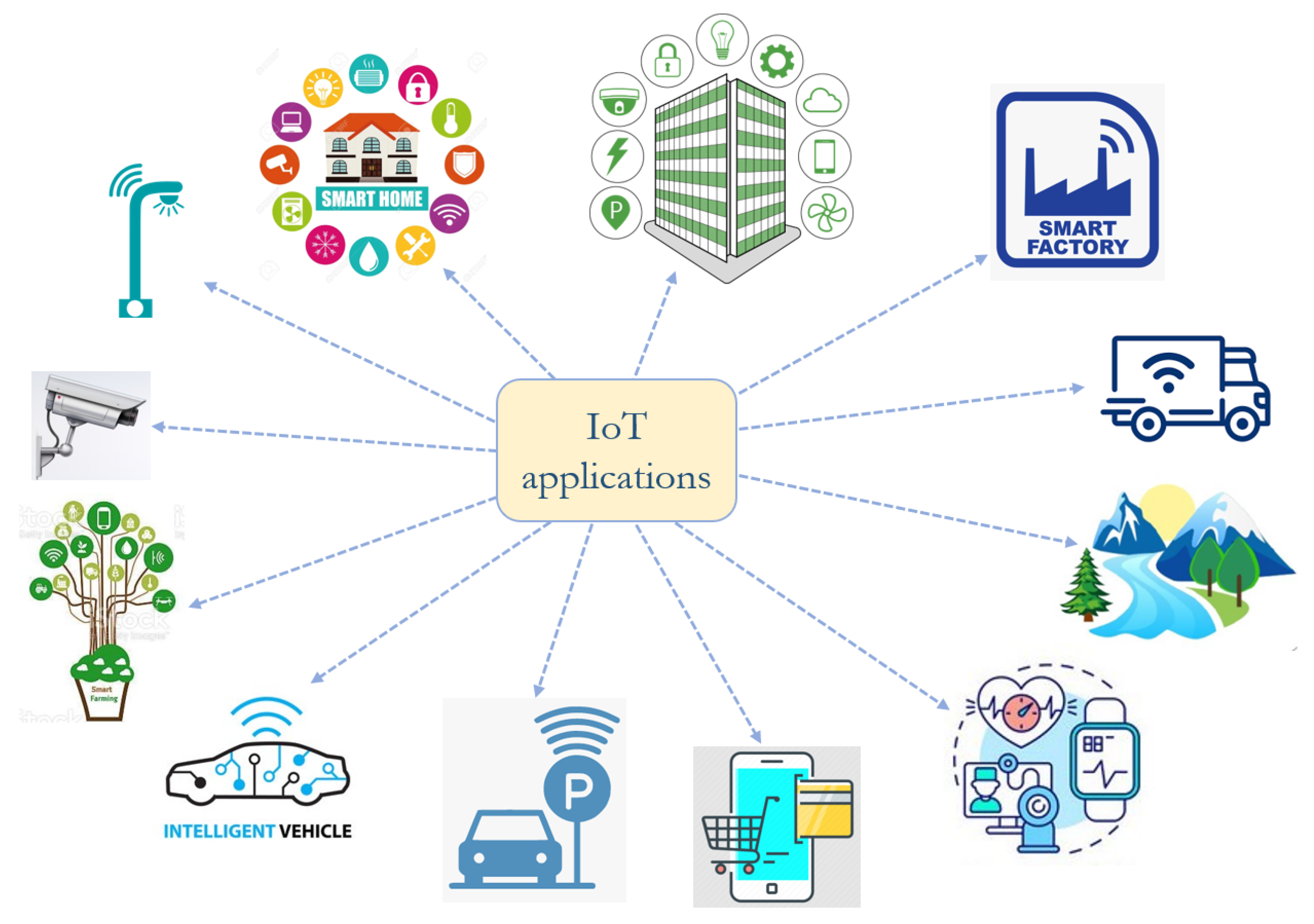When it comes to IoT SSH applications examples, the possibilities are endless. The Internet of Things (IoT) has revolutionized how devices communicate, and SSH plays a crucial role in securing these interactions. Imagine a world where machines talk to each other seamlessly, and sensitive data is protected with military-grade encryption. That’s what IoT SSH applications bring to the table. Whether you’re a tech enthusiast or a developer looking for inspiration, this article dives deep into the world of IoT SSH and uncovers its potential.
Let’s face it, the Internet of Things is no longer just a buzzword. It’s a reality that’s shaping industries, from healthcare to manufacturing. But with great power comes great responsibility. Securing IoT devices is not optional; it’s a must. That’s where SSH comes into play. By leveraging SSH protocols, IoT applications can ensure secure communication between devices, even in the most challenging environments.
In this article, we’ll take you on a journey through the realm of IoT SSH applications. We’ll explore real-world examples, discuss their benefits, and highlight the challenges they address. So, buckle up and get ready to uncover the secrets behind IoT SSH applications that are driving innovation in today’s digital landscape.
Read also:Tamilblasters New Link Today Download Your Ultimate Guide To Safe And Reliable Content
What is IoT SSH and Why Should You Care?
IoT SSH stands for Internet of Things Secure Shell, and it’s basically the superhero of secure communication in the IoT world. Think about all those smart devices scattered across the globe. They need to talk to each other, share data, and perform tasks without compromising security. That’s where SSH comes in. It encrypts data, authenticates devices, and ensures that only authorized parties can access sensitive information.
Now, why should you care? Well, if you’re involved in any IoT project, security should be at the top of your priority list. Without proper security measures, your devices could become vulnerable to cyberattacks, data breaches, or even physical tampering. SSH provides a robust framework to mitigate these risks, making it an essential tool for anyone working with IoT applications.
Top 10 IoT SSH Applications Examples
Here’s where things get exciting. Let’s dive into some real-world examples of IoT SSH applications that are making waves in various industries. These examples will give you a glimpse of how SSH is transforming the IoT landscape.
1. Smart Home Security Systems
Smart homes are all the rage these days. From smart locks to security cameras, SSH ensures that your home remains secure. Devices communicate securely, and unauthorized access is blocked. For instance, SSH protocols can encrypt video feeds from security cameras, ensuring that only authorized users can view them.
2. Industrial IoT (IIoT) Monitoring
In the manufacturing sector, IoT devices are used to monitor machinery performance and predict maintenance needs. SSH secures communication between sensors and control systems, preventing data tampering and ensuring accurate readings. This translates to reduced downtime and increased efficiency.
3. Healthcare Wearables
Healthcare wearables, like fitness trackers and smartwatches, rely on SSH to protect sensitive health data. Whether it’s tracking heart rate or monitoring sleep patterns, SSH ensures that your personal health information remains private and secure.
Read also:Lauren Compton Nude A Comprehensive Look At The Misunderstandings And Truths
4. Smart Agriculture Solutions
Farmers are using IoT devices to optimize crop yields and reduce resource wastage. SSH secures communication between soil sensors, weather stations, and irrigation systems, enabling precise control over farming operations. This leads to better productivity and sustainability.
5. Energy Management Systems
Smart grids and energy management systems use IoT devices to monitor electricity usage and optimize distribution. SSH ensures that data transmitted between devices is secure, preventing unauthorized access and ensuring grid stability.
6. Connected Vehicles
Self-driving cars and connected vehicles rely heavily on IoT for navigation, traffic management, and safety features. SSH secures communication between vehicles and infrastructure, ensuring safe and efficient transportation.
7. Retail Inventory Management
Retailers use IoT devices to track inventory levels and automate restocking processes. SSH secures communication between RFID tags, sensors, and inventory management systems, reducing errors and improving efficiency.
8. Smart City Infrastructure
Smart cities use IoT devices to manage traffic, lighting, and waste management systems. SSH ensures secure communication between devices, enabling seamless operation and enhancing urban living.
9. Financial Services
Banks and financial institutions use IoT devices for ATM monitoring, fraud detection, and customer analytics. SSH secures sensitive financial data, ensuring compliance with industry regulations and protecting customer information.
10. Environmental Monitoring
IoT devices are used to monitor air quality, water levels, and climate conditions. SSH secures communication between sensors and data collection systems, enabling accurate analysis and timely responses to environmental changes.
Benefits of Using IoT SSH Applications
Now that we’ve explored some examples, let’s talk about the benefits of using IoT SSH applications. Here’s why they’re worth considering for your next project:
- Enhanced Security: SSH encrypts data and authenticates devices, ensuring secure communication.
- Scalability: IoT SSH applications can scale to meet the demands of large-scale deployments.
- Reliability: SSH protocols are robust and reliable, ensuring consistent performance.
- Compliance: Many industries have strict security requirements, and SSH helps meet these compliance standards.
- Cost-Effective: By preventing security breaches and downtime, IoT SSH applications save money in the long run.
Challenges and Limitations
Of course, no technology is perfect. IoT SSH applications come with their own set of challenges and limitations. Here are some to keep in mind:
One of the biggest challenges is managing keys and certificates. As the number of devices grows, so does the complexity of key management. Additionally, SSH protocols can be resource-intensive, which may impact performance on low-power devices.
Another challenge is ensuring compatibility across different platforms and devices. Not all IoT devices support SSH out of the box, so developers may need to implement custom solutions.
How IoT SSH Applications Enhance Security
Security is the backbone of any IoT deployment, and SSH plays a critical role in enhancing it. By encrypting data, authenticating devices, and providing secure tunnels, SSH ensures that sensitive information remains protected. Here’s how it works:
When two devices communicate over SSH, they establish a secure connection using cryptographic algorithms. This connection is encrypted, making it nearly impossible for attackers to intercept or tamper with the data. Additionally, SSH uses public-key authentication to verify the identity of devices, preventing unauthorized access.
Future Trends in IoT SSH Applications
Looking ahead, the future of IoT SSH applications is bright. Emerging technologies like quantum computing and blockchain are set to revolutionize IoT security. Quantum-resistant algorithms and blockchain-based authentication systems could enhance the security of IoT devices even further.
Another trend to watch is the rise of edge computing. By processing data closer to the source, edge computing reduces latency and improves performance. SSH protocols can be adapted to work seamlessly with edge devices, ensuring secure communication even in decentralized networks.
Best Practices for Implementing IoT SSH Applications
Implementing IoT SSH applications requires careful planning and execution. Here are some best practices to follow:
- Use strong encryption algorithms and keep them updated.
- Implement robust key management strategies to secure private keys.
- Regularly update firmware and software to patch security vulnerabilities.
- Monitor network traffic for suspicious activity and respond promptly to threats.
- Conduct regular security audits to identify and address potential weaknesses.
Conclusion
In conclusion, IoT SSH applications examples showcase the immense potential of secure communication in the IoT world. From smart homes to industrial automation, SSH plays a vital role in protecting sensitive data and ensuring reliable performance. By understanding the benefits, challenges, and best practices of IoT SSH applications, you can harness their power to drive innovation and improve security in your projects.
So, what are you waiting for? Dive into the world of IoT SSH applications and unlock new possibilities for your business. Don’t forget to share your thoughts in the comments below, and feel free to explore other articles on our site for more insights into the exciting world of IoT and security.
Table of Contents


